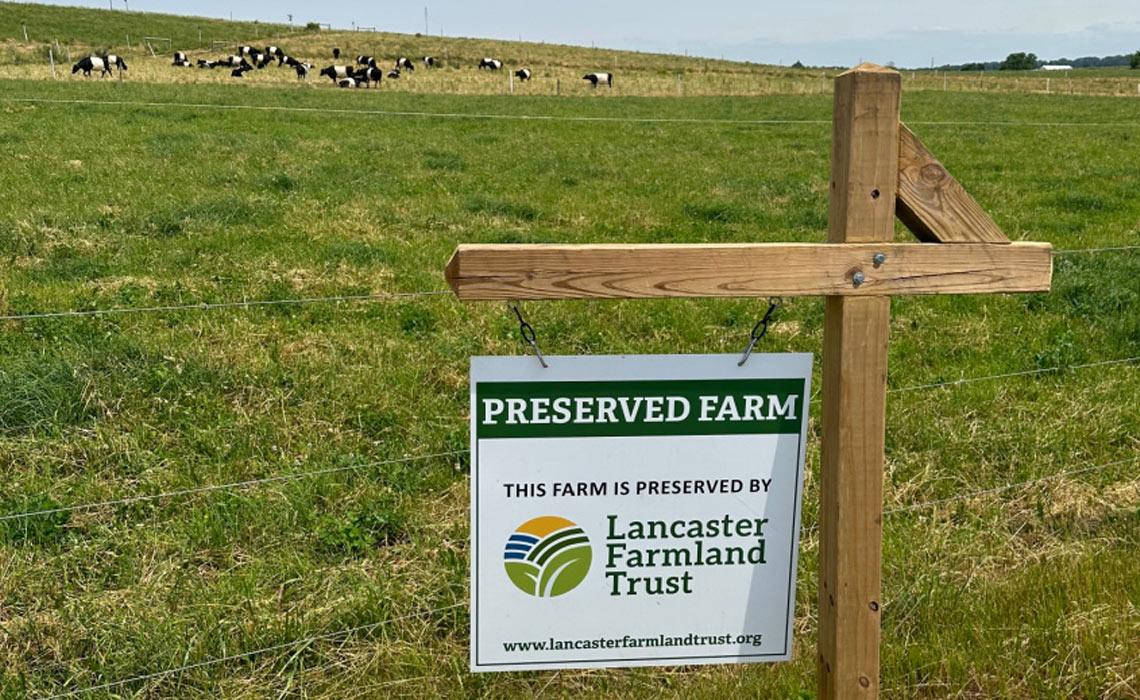Want to learn more about Amish traditions, culture, and heritage? Want to see how The Amish Village changes over the seasons? We pack our blog with helpful articles all about the Amish culture and some news about The Amish Village.
Preserving Farmland and Agriculture in Lancaster County

Over the past several years, many leading publications including U.S. News & World Report have touted Lancaster County as one of the best places to live or retire in the country. And that’s no surprise for those who call this area home!
There are many reasons why Lancaster County is such a popular destination for both tourists and residents. The region offers a slower pace of life compared to larger cities but is still convenient to metropolitan areas such as Baltimore, Washington, D.C., and Philadelphia.
For singles, young families, and those in their golden years, there’s lots to see and do in Lancaster City and the county suburbs – arts, entertainment, outdoor recreation, dining, shopping, and more.
Other big draws to Lancaster County are the beautiful farmlands and lush agriculture. When the first Europeans arrived here the Native Americans were growing squash, sunflowers, beans, and more. Over 90% of the early settlers became farmers, thanks to the area’s fertile soil.
Today, farming and agriculture continue to be a big part of the local economy, employing over 60,000 people and generating annual market value of $1.5 billion. They also play a significant role in local tourism – contributing to the $2+ billion that the county takes in from 9 million visitors every year.
Many of the Amish in Lancaster County make their living through farming and agricultural businesses.
The State of Farming and Agriculture in Lancaster County
As with most parts of the country that grow in popularity and population, Lancaster County has seen its share of changes over the past few decades. The increased pressure to develop more shopping centers, businesses, and sprawling neighborhoods has no doubt threatened the future of our local farmland.
Records show there are currently over 5,000 farms in Lancaster County – with more than 1,200 acres of farmland lost to development each year.
The good news is Pennsylvania leads the nation in the number of farms and acreage that are permanently reserved for agricultural use. In Lancaster County, there are key organizations that have focused their efforts on local farmland preservation for decades, and new strategic plans will help support their mission of vigorously accelerating the permanent protection and stewardship of the county’s farmland.
Supporters of Lancaster County Farmland Preservation
Two prominent local supporters of farmland preservation are the Lancaster County Agricultural Preserve Board and the Lancaster Farmland Trust. Together, they’re helping advance the preservation of the county’s 320,000+ acres of unpreserved farmland.
The Preserve Board was established in 1980 by the county’s commissioners to determine ways to protect the county’s agricultural lands. The board was made a county department a few years later. As of December 2022, over 85,000 acres of farmland on 1,036 Lancaster County farms have been preserved through the Board.
The Lancaster Farmland Trust (LFT) was established in 1988 and served as an alternative for Plain Sect landowners (Amish and Mennonites) who were uncomfortable working with the Board due to their religious beliefs regarding the separation of church and state. Today, LFT reports that approximately 85% of their clients are Amish or Mennonite farmers.
So how do these organizations make farmland preservation possible? They pay landowners to relinquish development rights of their properties and in return, LFT or the Board secure conservation easements that give them the legal right to ensure the land is only maintained for agricultural use.
LFT and the Board have helped preserve nearly 120,000 acres of farmland to date, which is about 30% of the land zoned for ag use in the county. New strategic planning initiatives are hoping to accelerate the percentage of preservation over the next several years.
LFT has preserved approximately 17 farms and 1,000 acres per year since 1988. This year, they launched a three-year plan to preserve 75 farms for a total of 5,000 acres by engaging a larger support base and expanding partnerships with farmers, landowners, local officials, and community organizations. Learn more about LFT’s 2023-2025 strategic plan.
The Economic and Environmental Benefits of Farmland Preservation
There are a number of economic and environmental benefits to preserving as much prime Lancaster County farmland as possible.
As mentioned earlier, farming and ag businesses employ over 60,000 people in our area. They also contribute greatly to the tourism revenue the county receives every year. Without it, the region’s economic base would suffer.
There are also many environmental benefits related to farmland preservation. Of course, there’s the benefit that farming provides a natural food source – producing crops, beef, poultry, and dairy products. Farming also provides other sustainable resources such as energy, raw materials, and even medicinal goods.
Farming and agriculture also have a positive impact on air quality, pest, and disease control, soil integrity and retention, and water regulation through natural irrigation and drainage.
Whether you’re a current or future resident of Lancaster County or you’re just stopping by on your vacation travels, take some time to appreciate the many gifts our local farmlands offer today, and for future generations.
Explore our Amish Farmlands this Summer
A trip to beautiful Lancaster County isn’t complete without a stop at The Amish Village!
With our Premium Package Tour, you can enjoy a 25-minute tour of our Amish farmhouse and a self-guided tour of the grounds, schoolhouse, and outbuildings. You’ll also enjoy a 90-minute narrated bus tour! Travel the Lancaster County backroads with amazing views of our countryside and farmlands as you learn about Amish life, history, customs, and beliefs. Book your tour today!


